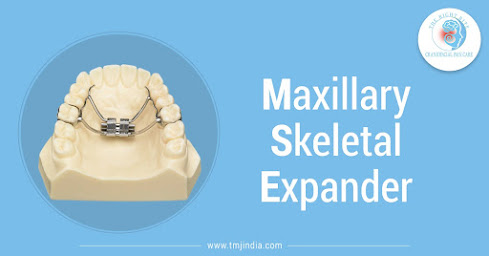Jaws are a crucial factor that decides the facial profile of an individual. Sizes of the jaws vary in people and in some, the upper jaw is smaller than the lower jaw. A narrow upper jaw can cause various complications like deviation of the lower jaw, difficulties with speech and chewing, misaligned teeth, wear and tear of the teeth, temporomandibular joint dysfunction, bruxism, breathing difficulties and sleep apnea. Maxillary expansion is a common orthodontic procedure which is used to widen the upper jaw or maxilla so that it fits in harmony with the lower jaw. It works by fitting an expanding appliance to the roof of the mouth to exert pressure on either side of your jaw. Some of the custom made appliances used for this at the Right Bite CPC are:
ALF Appliance
ALF (Advanced Lightwire Functionals) appliance is a light wired custom-made appliance generally used in children during their growth phase (till 15 years). It is used in slow expansion of maxilla and promotes rhythmic changes in muscle function to achieve stable results in improving the patient’s bite and TMJ function. ALF also improves the spinal alignment, posture, nervous system dysfunction, and airway reshaping. The wires to reposition jaws, dental arches, and teeth results in:
- Proper positioning of dental arches
- Corrects airway constriction to resolve breathing and sleep issues
- Corrects chewing, swallowing and speech abnormalities
- Improves sensory and nervous system regulation
- Creates optimal posture and spinal alignment
- Resolves TMJ disorders
- Corrects aesthetic and functional aspects of teeth alignment
DNA Appliance
The DNA Appliance (Daytime Nighttime Appliance) is a removable appliance used in adults for maxillary expansion and provides faster results than ALF (about 12-18 months). Based on rhythmic activation and pressure from the tongue, this device gently expands the space of the upper arch in three dimensions. This way, the lower jaw moves forward into a more natural position while pulling the tongue and soft tissues to increase the size of the airway. It is a pain-free, non surgical procedure which helps in gradual remodelling of the craniofacial bones and helps in:
- Healthy alignment of the teeth and dental arches
- Treating TMJ disorders
- Eliminating snoring and obstructive sleep apnea
- Improved breathing
- Cosmetic enhancement of facial features
MSE
MSE or Maxillary Skeletal Expander is used for faster, more aggressive and effective expansion of maxilla. MSE is ideal for people under the age of 25 years. In older patients this appliance is often coupled with a minor surgical procedure. This device uses mini implants as anchors to allow for expansion of the upper jaw in patients who are skeletally mature without the need for traditional jaw surgery. It is a novel, non invasive procedure which is used for:
- Lateral Expansion of Maxilla
- Increasing airway volume
- Providing more space for tongue
- Increasing volume of nasal passages
- Aesthetic alignment of teeth
Maxillary expansion requires regular appointments with your TMJ specialist to ensure that you are on track with the treatment and to check on adjustments that need to be made. Using these devices, the Right Bite CPC has seen numerous successful cases of non-surgical maxillary expansion.
















